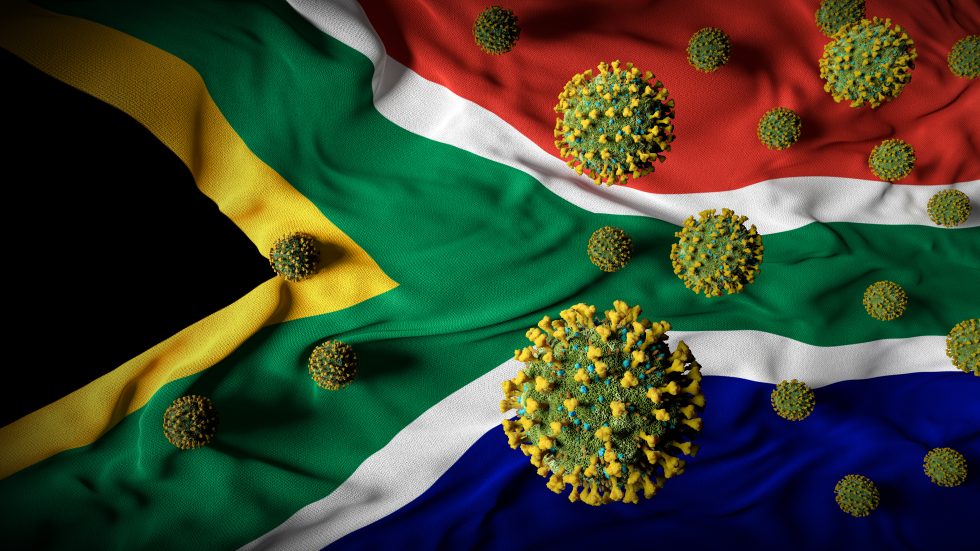GBy Carol Garner Rn CCMSA, Chairperson CMASA
A country no bigger than Texas, South Africa is filled with beauty from wildlife to mountain peaks and its population of 60 million people of all races and diverse cultures.
 Carol Garner
Carol Garner
The onset of COVID -19, as a Global Pandemic, has introduced challenges for all case Like the rest of the world, South Africa was locked down on 27 March 2020 for an initial period of 8 weeks. All elective surgery was put on hold as hospitals were focused on converting normal wards to ICUs to deal with the influx of COVID patients. One of the first things to be implemented was the total ban on the sale and serving of alcohol to avoid the unnecessary trauma admissions due to intoxication. Cigarettes were also banned the sharing of cigarettes in many rural settings is a reality and would increase the spread of the virus. We were not allowed to leave our homes, unless we were in essential services, food shopping or in need of medical assistance. The initial curfew imposed was from 9pm to 6am and the traffic on the roads was immediately reduced to a small fraction of its usual volume. Motor Vehicle accidents, stabbings and other violence caused by alcohol were almost obliterated for those 8 weeks.
The decrease in gave the hospitals the beds and medical facilities necessary to cope with the hordes of extremely ill COVID patients. As the COVID positive patients decreased and control was achieved the lock down measures were slowly lifted, but it took a further 4 months to lift the ban on alcohol. This freedom was short lived, with the second wave fast approaching during the festive season, the alcohol ban was re-implemented. For the first time in history the main trauma facilities over Christmas and New Year were empty. Case Managers’ focus changed from managing poly trauma cases and similar catastrophic events to managing patients at home as no beds were available in the hospitals to the patients. Oxygen became the new commodity and the ongoing “fight” to secure an oxygen concentrator became a frightening reality. Discharge planning came to the fore front like never before. Case managers had to anticipate the discharge so the home oxygen could be booked, arrange carers to assist and plan the home sanitisation in advance of the discharge etc. Telephonic communication with families updating them on their loved one’s condition became a regular occurrence as no visitation was allowed. Many patients died, scared and alone, surrounded by gowned & masked PPE strangers. We all started to appreciate recovery and living again, being truly thankful for the small things in life.
The increase in the mental health and wellness facilities admissions due to increased suicide attempts, depression and stresses exacerbated by the lock down, ban on cigarettes and alcohol and economic factors saw Case managers rising to the challenge. Hospital based Case Managers and funder Case Managers started working together like a well-oiled machine. Patients and families became the central focal point instead of revenue and cost saving.
South Africa became the focal point of the pandemic in December with a new aggressive variant that caused many countries to shut all borders to South African travellers. We quickly became the country to avoid causing further economic challenges to add to the misery. Great anticipation was soon crushed with disappointment as the first batch of vaccines received were found to be ineffective against the aggressive SA variant. Fortunately, the 2nd batch from a different supplier proved effective and is rolled out. First to be vaccinated are healthcare workers, and then teachers, followed by the rest of the population. We anticipate it will take a further 9 months to vaccinate 75% of the community when hopefully population immunity wil be achieved.
We remain grateful for our health and that as Case Managers we can continue to make a difference in the lives of our patients and their families even though the landscape is quite different.


Carol, thank you for sharing your experiences in South Africa! It’s so interesting to me to hear about the response to the pandemic from a different cultural perspective. It’s moving to read the profound challenges experienced. I hope the vaccination efforts are moving forward swiftly and effectively.